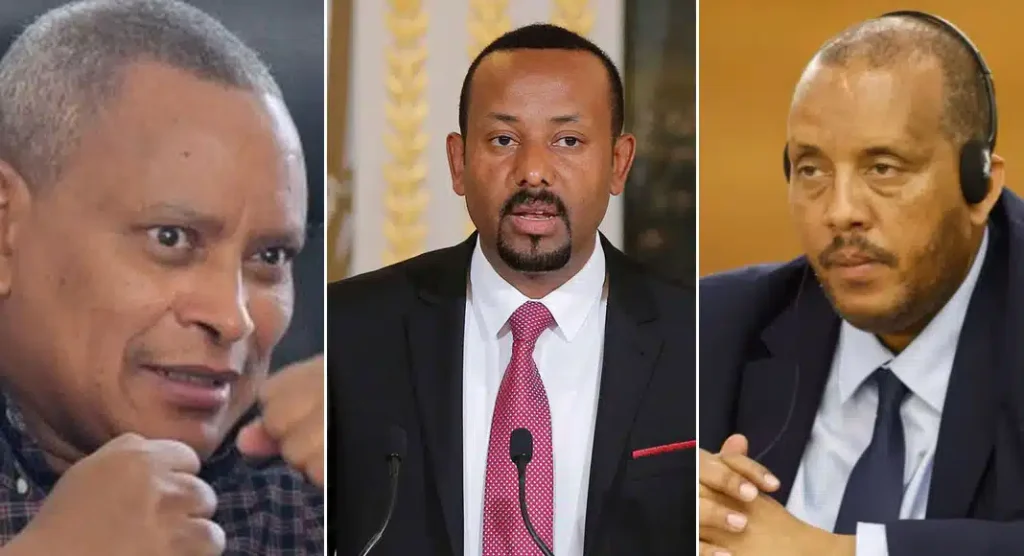Ethiopia’s National Election Board (NEBE) has officially revoked the legal recognition of the Tigray People’s Liberation Front (TPLF), citing the party’s failure to meet conditions set under provisional registration guidelines. The decision, which took effect on May 5, 2025, has sparked renewed tensions between the federal government and Tigray’s dominant political force.
NEBE announced the revocation after the TPLF failed to comply with requirements laid out under Proclamation No. 1332/2016, which allows formerly armed political movements to register under special terms. These conditions included holding a general assembly within six months of registration and notifying the Board in advance for oversight purposes. The TPLF was registered under this framework in August 2024, but according to NEBE, it failed to fulfill its obligations.
In a statement released this week, the Board said the TPLF
“did not implement the corrective measures required within the given time frame.”
“did not implement the corrective measures required within the given time frame.” The decision follows a final warning issued in February 2025, which the party reportedly did not act upon.
However, the TPLF has rejected the Board’s rationale, arguing that its legal status was already restored through the November 2022 Pretoria Cessation of Hostilities Agreement (CoHA)—the deal that ended the two-year war in northern Ethiopia. The party insists that the peace agreement obliges the federal government to reinstate its pre-war political status.
“Refusing to recognize our legal legitimacy undermines the spirit and the letter of the Pretoria Agreement,”
“Refusing to recognize our legal legitimacy undermines the spirit and the letter of the Pretoria Agreement,”
the party said in a statement, adding that the Board’s position threatens to derail the fragile political process.
The TPLF further claims it postponed its 14th party congress in July 2024 based on verbal assurances from federal representatives that its status would be reinstated. After those assurances failed to materialize, the party went ahead with the congress in August 2024, a decision that reportedly caused internal divisions within the party.
NEBE maintains that there is no automatic mechanism for restoring the legal status of previously banned political organizations and that all such groups must undergo formal re-registration. The Board rejected the argument that the Pretoria Agreement offers a legal path for reinstatement outside Ethiopia’s electoral laws.
“The current legal framework does not provide for special treatment,” NEBE stated. “The law applies equally to all entities, including those emerging from armed struggle.”
The TPLF disagrees, arguing that groups such as Fano—a militia not previously registered—cannot be held to the same standard. The party also noted that the African Union mediation team that facilitated the Pretoria Agreement had recommended the TPLF’s legal reinstatement, although no formal steps have been taken to enforce that recommendation.
Calling on the African Union, IGAD, and international partners to uphold their roles in ensuring the full implementation of the peace accord, the TPLF reaffirmed its commitment to peaceful political engagement.
“The Pretoria Agreement is central to our future,” the party stated. “Our inclusion in the political process is not only a legal matter—it is essential to maintaining peace and rebuilding trust.”
A Political Force with a Dominant Past
Founded in the 1970s, the TPLF began as an armed insurgent group and became the leading party within the Ethiopian People’s Revolutionary Democratic Front (EPRDF) coalition that came to power in 1991 after toppling the military dictatorship of the Derg. For nearly 27 years, the TPLF played a dominant role in Ethiopia’s government, effectively shaping national politics, security, and economic policies.
During its long rule, the TPLF-led government oversaw rapid infrastructure development and economic growth, but it was also criticized for authoritarian practices, suppression of dissent, and human rights abuses. The party’s influence began to decline after the appointment of Prime Minister Abiy Ahmed in 2018, who introduced political reforms and dissolved the EPRDF coalition.
Tensions between the federal government and the TPLF escalated sharply in 2020, eventually culminating in a brutal two-year civil war in northern Ethiopia that left hundreds of thousands dead and millions displaced.
Now, with its legal status once again in question, the TPLF’s political future remains uncertain amid continued calls for reconciliation and national unity.
Observers warn that the revocation may further complicate efforts to consolidate peace and national reconciliation in Ethiopia, particularly in the Tigray region, where tensions over governance and security remain high.



